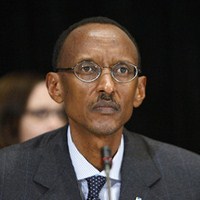KIGALI, Rwanda—For a milestone year in Rwanda’s post-genocide history, 2014 began with an ugly start.
In the early morning hours of Jan. 1, as revelers flooded Kigali’s nightspots, Patrick Karegeya lay half a continent away, dead in a Johannesburg hotel room. Once among Rwanda’s most powerful men, Karegeya had served for a decade as Rwanda’s head of external intelligence before falling out with the regime of President Paul Kagame. After spending time in prison, in 2007 he fled to South Africa, where he was granted asylum and put under state protection. But sometime on New Years Eve, in the upscale Michelangelo Towers, where he had rented a room for a friend, Karegeya was attacked and strangled with a rope. A nephew discovered his body the following day. The spy chief’s face was “charcoal black.”
As news of the killing spread to Kigali, Rwandan officials were quick to deny involvement. Yet the episode fit an established pattern dating to the 1990s of attacks against Kagame’s opponents on foreign soil. Rwandan officials also did little to conceal their satisfaction. Kagame told the Wall Street Journal he “wished” his government had carried out the killing. In a separate speech, he warned of “serious consequences” for anyone “undermining” Rwanda.

